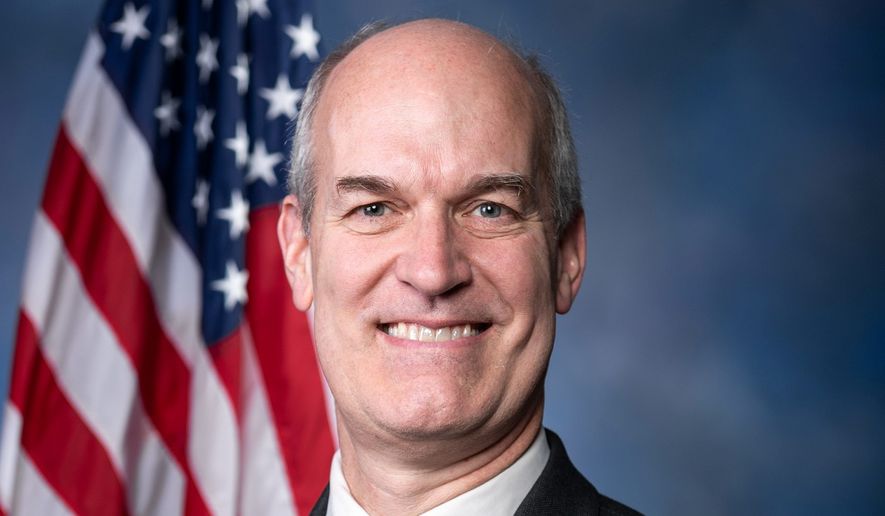OPINION:
The COVID-19 pandemic continues to reduce air travel demand, slow U.S. aerospace manufacturing, and trigger industry-wide layoffs. As Congress and the Biden administration work on another round of essential pandemic relief, part of this effort must include strengthening aviation safety, bolstering the country’s global aviation leadership, fostering innovation in U.S. airspace, and restoring confidence in air travel.
As Chair of the House Subcommittee on Aviation, I look forward to advancing the following action items in the 117th Congress:
Deliver COVID-19 Pandemic Relief: In the Pacific Northwest and across the country, the aviation manufacturing workforce drives the economy and helps the U.S. remain globally competitive. Due to the pandemic, an estimated 100,000 aerospace manufacturing workers nationwide have lost their jobs and 220,000 additional jobs are at risk of furlough. Rep. Ron Estes of Kansas and I recently introduced a bipartisan bill to help prevent aerospace supply chain furloughs and rehire employees who were furloughed due to the pandemic; I am pleased the Transportation and Infrastructure Committee included similar language in its recent pandemic relief legislation. I will also continue to push for an extension of the successful Payroll Support Program to keep airline employees on payroll with benefits.
Keeping the flying public safe from COVID-19 is even more difficult because of the lack of coordinated federal leadership by the previous administration. A national aviation preparedness plan would ensure the safety of aviation crews and passengers. Earlier this month, Rep. Don Beyer of Virginia and I introduced a bill to bring federal agencies, frontline aviation workers, and other key stakeholders to the table to develop a clear, comprehensive plan of action.
Ensure Aviation Safety: Congress has an obligation to the 346 victims of the two Boeing 737 MAX crashes and their families, as well as the traveling public, to ensure the safety of air travel. Last year, Congress passed my bipartisan legislation to help restore the integrity of the FAA aircraft certification process by improving aviation safety culture, enhancing transparency, and integrating human factors to ensure pilots and flight crews can do their jobs safely. I look forward to conducting oversight of FAA implementation of these critical reforms to ensure U.S. aviation remains the global gold standard in safety.
Foster Innovation in U.S. Airspace: The safe integration of new airspace users and deployment of greener technologies will bolster U.S. jobs and grow U.S. leadership in sustainability. U.S. aviation is making strides to improve fuel efficiency, green ground operations, and advance new, sustainable propulsion. Congress must pass a comprehensive infrastructure package to invest in clean transportation to build resiliency, deploy alternative fuel infrastructure, and promote zero and low-emission aviation technologies.
Improve U.S. Competitiveness in the Global Market: The U.S. must also maintain leadership in the global aviation and aerospace market through fair competition, robust infrastructure investment, and a rigorous and efficient certification process. Technological innovation and global competitiveness are only possible with continued investment in the next generation of engineers, mechanics, and innovators. Improving skills training is an all-around win for employers, job seekers, and the aviation and aerospace sectors. I am working to improve access to STEM-based apprenticeships and career and technical education programs to diversify and grow the U.S. workforce.
Enhance the Air Travel Experience for Passengers: For years, I championed efforts to improve accessibility of air travel for passengers with disabilities. For the first time in recent memory, the Subcommittee held a roundtable in November 2019 to discuss the latest accessibility provisions in the FAA reauthorization bill and new challenges facing passengers with disabilities. I am committed to working with advocates, industry, and the administration to ensure these passengers have a safe and dignified air travel experience.
The future of U.S. aviation is bright, and will be safer, greener, more accessible and innovative. I stand ready to work with the Biden administration on these goals and other shared priorities to drive the U.S. economy and keep people moving.
• U.S. Representative Rick Larsen, Washington Democrat, serves on the House Transportation and Infrastructure Committee and the House Armed Services Committee. He is the Aviation Subcommittee Chair, a position critical to jobs and the economy in Washington state and the Second District which is home to vital national security with Naval Station Everett and Naval Air Station Whidbey Island. He co-founded the Congressional Arctic Working Group, a bipartisan group to help bring more focus to U.S. policy issues related to the Arctic.




Please read our comment policy before commenting.